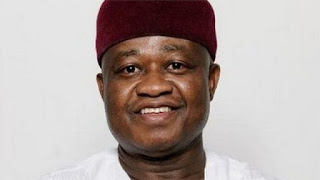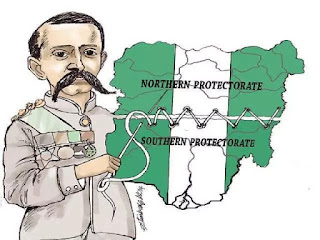IS BUHARI DEBITING US TO OBLIVION?
In October 2005, Nigeria and the Paris Club
announced a final agreement for debt
relief worth $18 billion dollars and an overall reduction of Nigeria's debt stock by $30
billion. The deal was completed on April 21, 2006, when Nigeria made its final payment
and its books were cleared of any Paris Club debt. It was a huge moment for Nigeria’s economy and should have
propelled Nigeria into G20 had we really used this opportunity to invest in our
people and economy. In 2006 after the debt relief, our total debt stood at mere
$3.5 billion dollars but fifteen years later in 2020 according to the debt
management office (DMO) Nigeria’s Total Debt Stock (Foreign & Domestic), as at
June 2020 stood at N31.01 trillion ($85.9 billion dollars). Nigeria’s debt to
gross domestic product ratio has increased to 28%, it remains lower than the
average ratio recorded in sub-Saharan Africa. Between 2015 to 2019, the Nigerian government spent about N34.83 trillion ($88.3
billion dollars), comprising of recurrent expenditure (73.1%), capital
expenditure (19.2%) and transfers (7.8%). As we keep borrowing
blindly in the last five years, total public debt increased by
$22.09 billion between June 2015 and June 2020, that
is a 34.6% increase. As our euro bond is expected to mature
in January 2021, our ability to fulfill loan obligation is being questioned.
According to above figures, it is only about 19%
of the debt load that has been invested in further developing the nation
through the creation of relevant infrastructure. Nigeria’s infrastructural
deficit is so huge that budgetary allocations, even if fully implemented could
only cover a small portion. The National Integrated Infrastructure Master Plan (NIIMP),
according to a statement by the World Bank, faces a $100 billion annual
investment gap in infrastructure, and it will take decades at that rate to
bridge the deficit. The Minister of Finance admits that the country’s core
infrastructure stock is currently estimated at 30% of the Gross Domestic
Product (GDP) which falls far short of the international benchmark of 70% and remains
lower than the average ratio recorded in sub-Saharan Africa. Major infrastructures shouldn’t be restricted to rails and roads,
which this government seems to be focusing on to the detriment of other sectors,
like manufacturing, education etc.
The minister of works, Babatunde Fashola, late
last year disclosed to the House of Representative committee on works that
there are 524 road projects ongoing in the six geopolitical zones of the
country, but sadly and unfortunately you cannot point one major project that is
completed in the last five years. The 311 billion Naira and 127 kilometers Lagos-Ibadan
expressway, originally awarded in 2013 at 167 Billion, since 2018 the work is
ongoing and the minister says it will be completed in 2022. The Abuja-Kano
expressway awarded to Julius Berger at the cost of 155 Billion Naira with a
completion period of 36 weeks is now confirmed by the minister, after 28
months, will only be deliverable in 2025. Some members of the House of
Representatives had claimed the contract was overpriced considering each
kilometer of the 375 kilometers will gulp 450 million Naira. Do you know the 2nd
Niger bridge at the cost of 336 billion Naira could build both Lagos-Ibadan and
Abuja-Kano expressway? This project, a mere 12 kilometer long including the
bridge and ancillary infrastructure that began in 2018 is expected to be
completed in 2022 as each kilometer of the bridge gulps 28 billion Naira.
It is true no country is debt-free and modern
governance is not possible without debt, but the problem is focusing the
acquired loans towards addressing the real needs of society and this is what we
lacked. For all the loans we had been taking in this administration, the World
Bank loan we took recently during the covid lockdown is proving to be the most
difficult and detrimental to the socio-economic life of this country. Nigeria being
significantly under pressure for loan, ruled out on any Eurobond this year, that
is expected to mature in January next year. World Bank approached Nigeria in
February 2020 for a possible loan disbursement as the world envisioned the
economic impact of COVID-19 on the global economy. Several reports at the time
indicated that the World Bank had laid out conditions upon which the Apex bank
was to lend money to Nigeria among which are a unification of the exchange
rate, removal of fuel subsidy, and introduction of a cost-reflective tariff. Stringent
conditions that are unprecedented, this is despite being a loan tied to the
Covid-19 pandemic. A respected financial analyst Feyi Fawehinmi wondered why
the World Bank was placing so much emphasis on conditionalities that do not
relate to the essence of the loan. “They have not asked for things like how many COVID-19 centers
have we built? How well are we containing the spread of the virus and what
palliatives has the government put in place to alleviate the poor?
What has happened in the last six months is
a clear indication that the Nigerian government had acquiesce to all the
stringent measures attached to the IMF loan as we have seen in a swift move the
Buhari government abolished fuel subsidy and systematically increased the price
of fuel in the domestic market to 173. The increment on petrol started using a
gimmick that was meant to deceive Nigerians by reducing the price in March from
145 down to 125, which was further reviewed downward at the end of that month
to 123. By the end of May a new directive in a circular pegged
the new pump price at N121.50 to N123.50 per litre.
From there the drama ends and the increment began, reaching 143, 151 and
finally 165-173. The abracadabra succeeded in fooling Nigerians systematically
as subsidy is withdrawn and fuel price is increased. But subconsciously as the
economic hardship bit harder into Nigerians especially the youths, we have seen
the mayhem they unleashed in the guise of endsars. Our debt stress is pushing government towards
frantic search for revenue thus making life harder to the masses. Those in government
need to understand that as long as they will continue to seek all means to fund
their lavish lifestyle by maintaining or even increasing their budgetary
allocations while they continue to squeeze the masses by withdrawing the little
subsidy they enjoy and imposition of taxes, there is great danger for an
uprising as the Endsars protest warned. Government should do more in investing
in its youth. I believe if a quarter of the loans we collected in the last five
years were used to fund SME’s, considering this government had tried in
harmonizing its revenue collection with some transparency, our youths could
stimulate serious growth and reduce unemployment. Government should make
programs like NIRSAL be open and transparent on the basis of first come first
serve, that alone could seriously create jobs and reduce unemployment. But
despite the Endsars protest and danger it shows, our leadership still want to
continue the old ways and that is dangerous for us all. As the old saying goes “One thorn of experience is worth a whole wilderness of warning”




Comments
Post a Comment